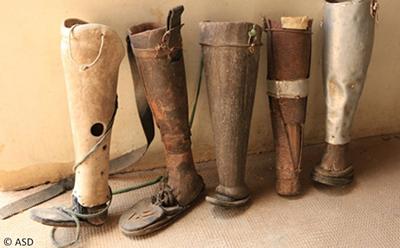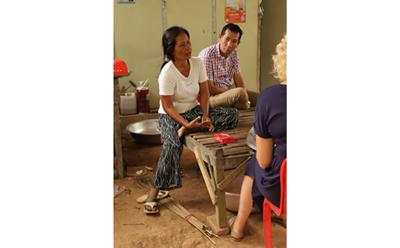Southampton researchers unite to address global challenge of limb loss

In countries with a landmine legacy and a high proportion of people with lower limb loss, access to comfortable and effective prosthetic limbs is critical.
But flying in scores of artificial legs isn’t the answer. A team from the University of Southampton has taken a big step back and adopted a truly multidisciplinary approach, combining Engineering and Computer Science with Health Sciences to develop practical and tangible solutions in Cambodia.
Dr Alex Dickinson, Associate Professor within Engineering and Physical Sciences, is leading the project, called ‘LMIC (Lower and Middle Income Countries) Limbs’. He explained: “A multidisciplinary approach is essential. The benefit of engineering is easy to see, but the most important thing when it comes to designing anything is asking users what they need.”

LMIC Limbs was established with Dr Maggie Donovan-Hall, Dr Cheryl Metcalf and Dr Peter Worsley in Health Sciences.
The team is addressing issues such as getting a service to patients in rural areas, understanding the societal and cultural challenges of disability and how to influence the wider government, healthcare policy and legislative agendas to make a lasting change.
Work is also well underway to improve the technology in Cambodia to produce better-fitting prosthetics.
Read the full story in the latest edition of Re:action, our research and enterprise magazine.